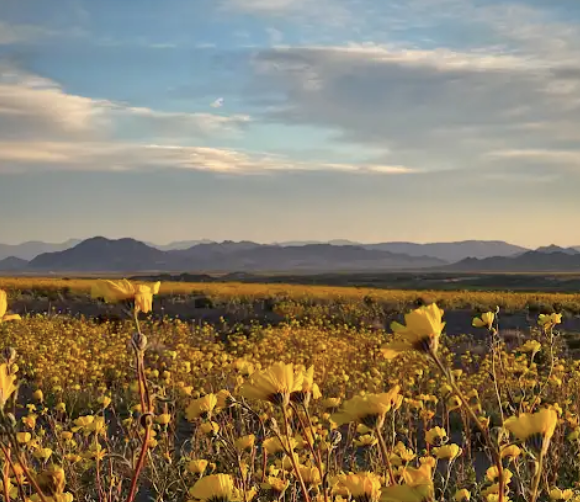
- Details
- By Native News Online Staff
The Bureau of Land Management (BLM) is hosting a public meeting tomorrow, Thursday, February 27, to hear from constituents on the mineral withdrawal from Amargosa Valley, Nevada.
The meeting will give locals the opportunity to address concerns about the impacts of corporate mining on the region’s water supply, land, and long-term sustainability. Being held at the Amargosa Valley Community Center, tribal leaders, residents, and advocates are expected to speak out against the threat mining poses to Amargosa Valley.
Mandi Campbell, Tribal Historic Preservation Officer of the Timbisha Shoshone Tribe will be in attendance to advocate on behalf of her tribe.
Before the BLM Public Meeting, a community gathering will be held at 4:30 PM featuring a lineup of local speakers. The BLM meeting starts at 5:30 PM.
More Stories Like This
Native News Weekly (August 25, 2024): D.C. BriefsUS Presidents in Their Own Words Concerning American Indians
Native News Weekly (December 28, 2025): D.C. Briefs
Minnesota Lt. Gov. Flanagan Draws Right-Wing Backlash After Wearing Hijab in Solidarity With Somali Community
Haaland Meets with Southern New Mexico Law Enforcement on Public Safety Priorities
Help us defend tribal sovereignty.
At Native News Online, our mission is rooted in telling the stories that strengthen sovereignty and uplift Indigenous voices — not just at year’s end, but every single day.
Because of your generosity last year, we were able to keep our reporters on the ground in tribal communities, at national gatherings and in the halls of Congress — covering the issues that matter most to Indian Country: sovereignty, culture, education, health and economic opportunity.
That support sustained us through a tough year in 2025. Now, as we look to the year ahead, we need your help right now to ensure warrior journalism remains strong — reporting that defends tribal sovereignty, amplifies Native truth, and holds power accountable.
 The stakes couldn't be higher. Your support keeps Native voices heard, Native stories told and Native sovereignty defended.
The stakes couldn't be higher. Your support keeps Native voices heard, Native stories told and Native sovereignty defended.
Stand with Warrior Journalism today.
Levi Rickert (Potawatomi), Editor & Publisher

